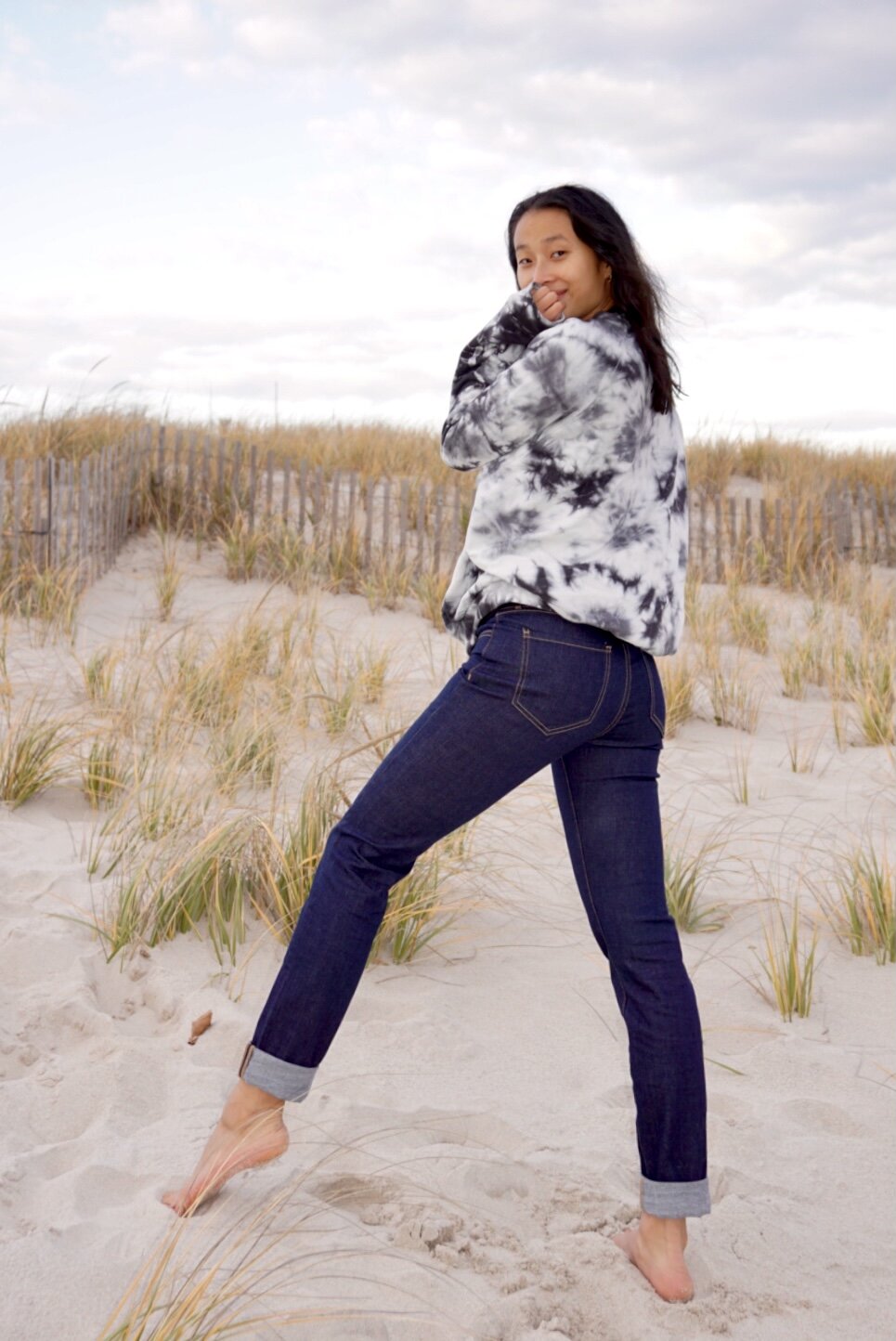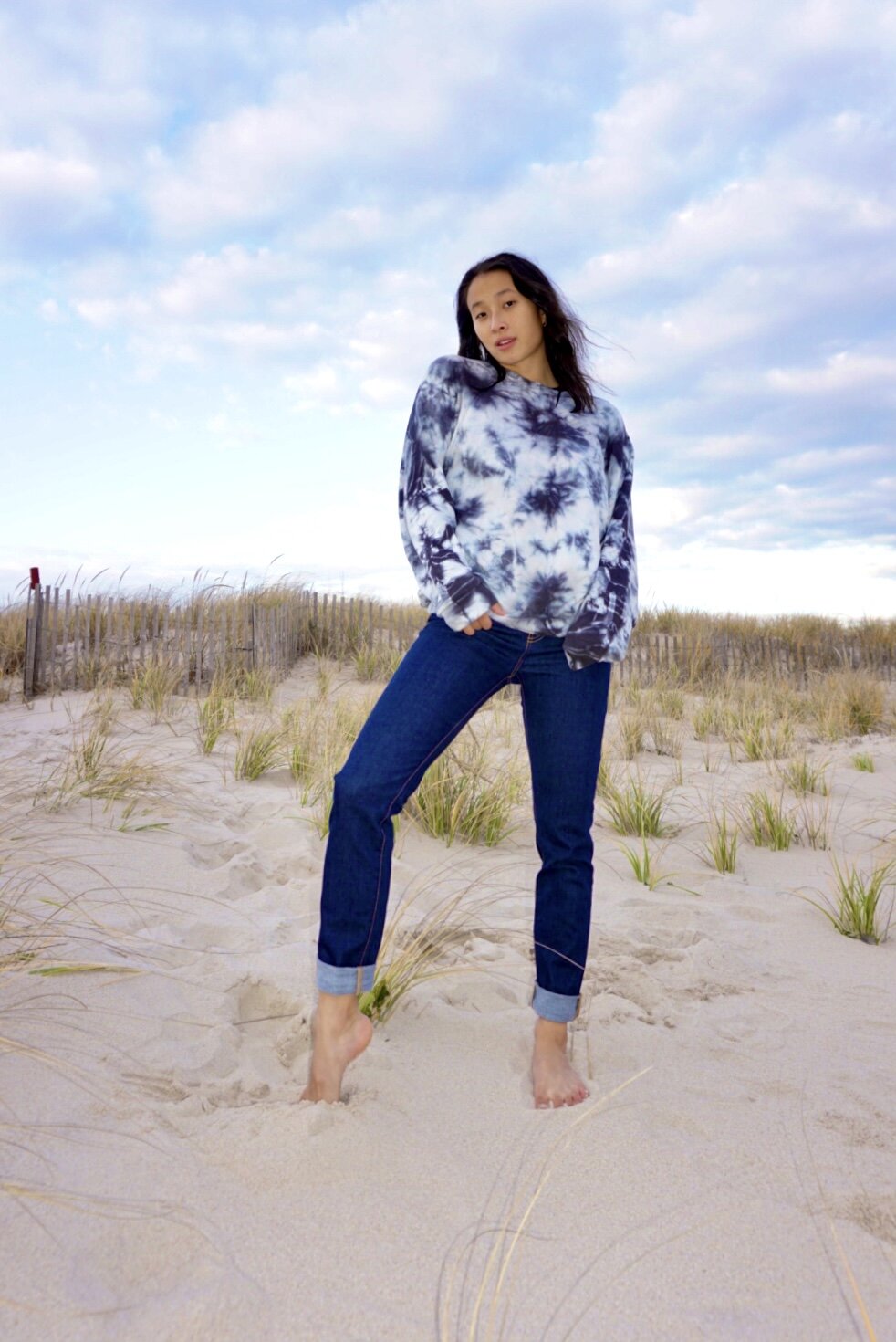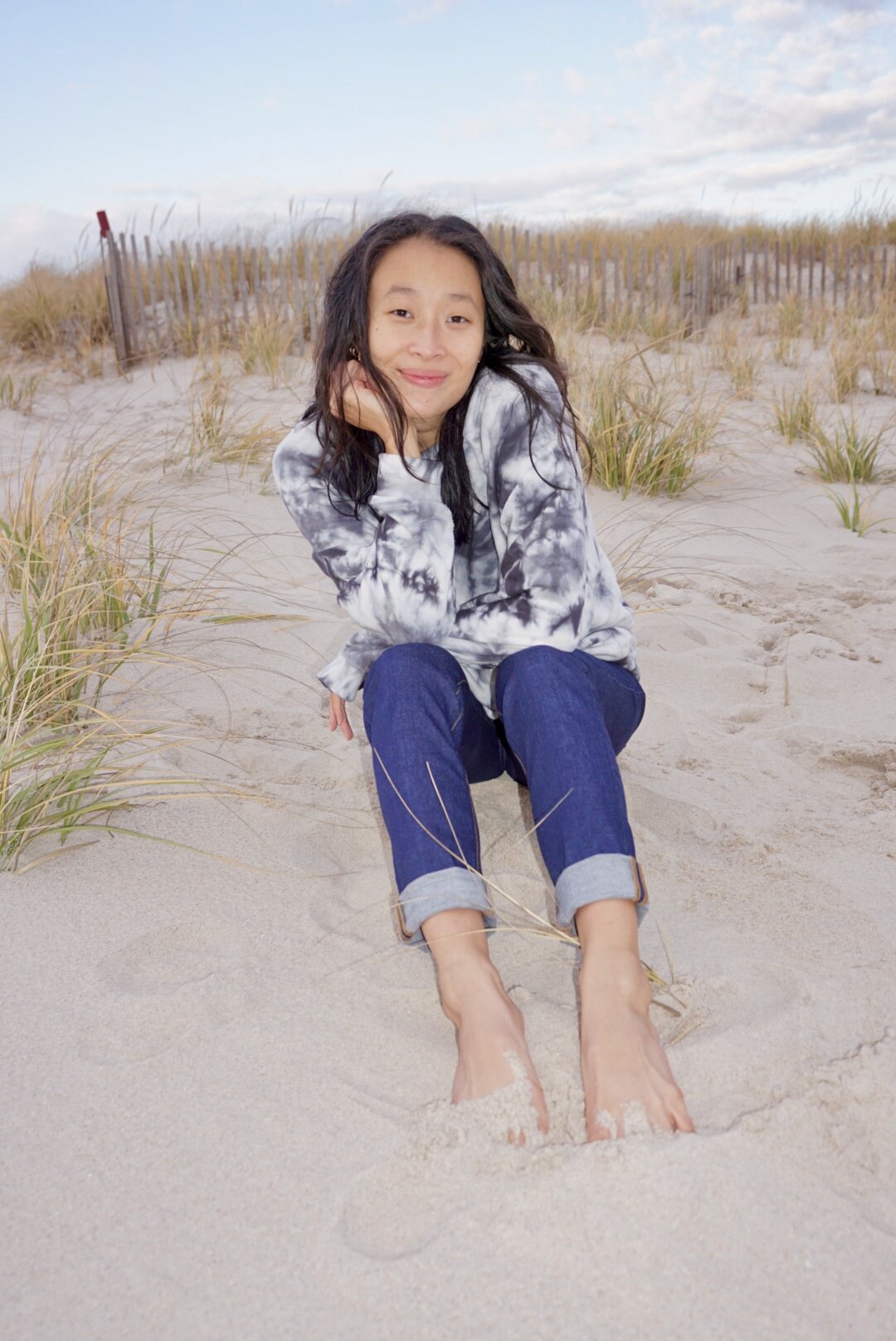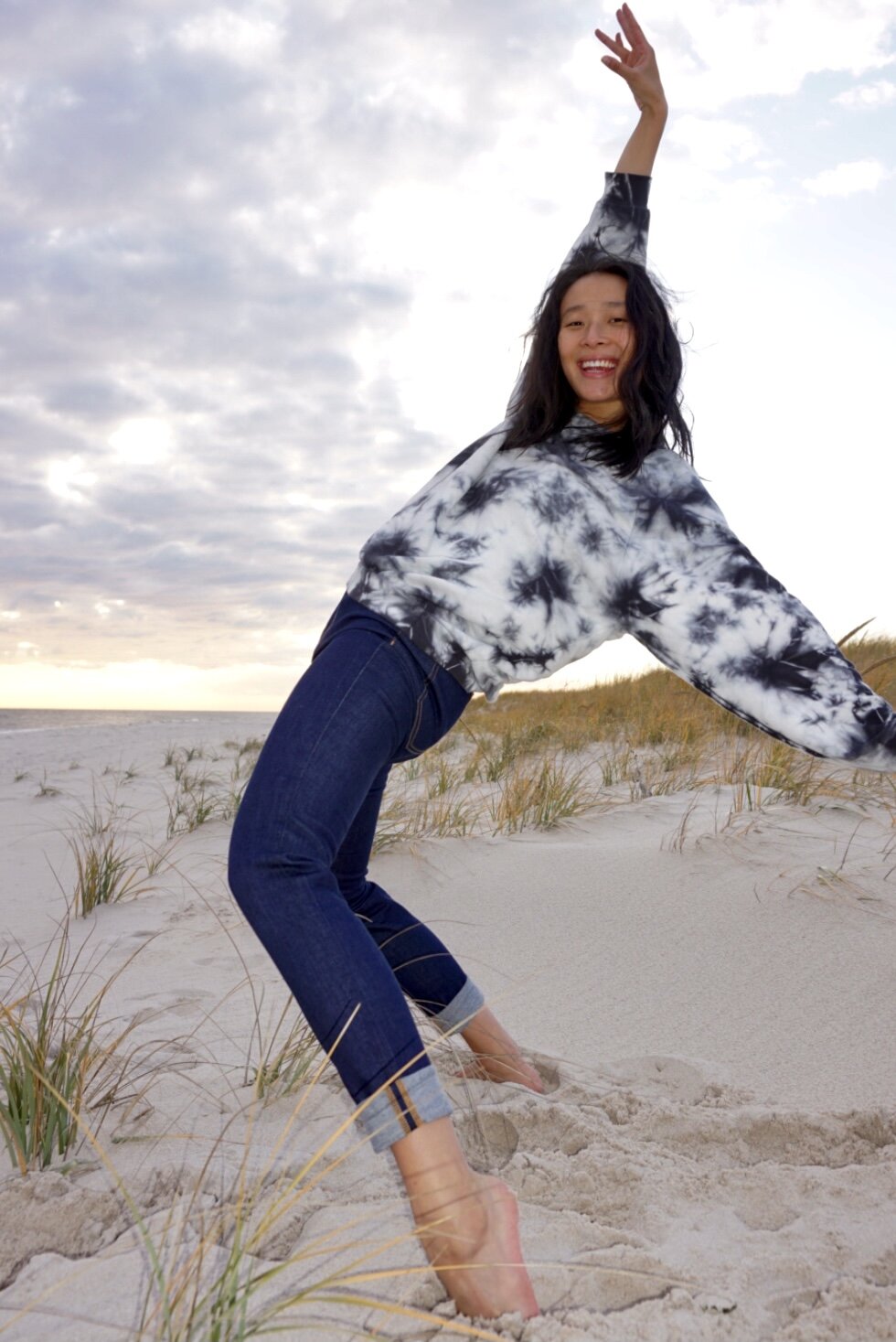Molly Crossin, CEO of Industry Standard, on reimagining capitalism in the fashion space
The one thing 2020 has actually been good for is shining a light on the dark places in capitalism, especially in the fashion space. — Molly Crossin
My 2020 obsession? Trying to dissect and better understand my own beliefs around capitalism. Is ethical capitalism possible? I would hope to believe so, and I obviously do have faith in that goal given that I’m now working to build a social venture. Over the last year, I have obsessed over these questions through books, debates with friends and even mentors, and even in my own career decisions. Last year I made the decision to step away from the nonprofit world after finding so much hope in how brands are able to shift culture, especially with Generation Z, and also started to become hyperaware of how stuck I felt surrounded by the nonprofit industrial complex.
These questions have led me into incredibly inspiring conversations with founders who are actively working to build more sustainable and ethical businesses. Here’s my conversation with Molly Crossin, CEO of Industry Standard:
What is Industry Standard?
Industry Standard is a woman founded and owned wardrobe fundamentals company. We make organic cotton tees, cozy sweatshirts, and small batch denim responsibly in the US, while always striving to always balance price and quality.
What inspired you to start the business?
Fun fact, I’m not the founder! I met Industry Standard as a customer at a pop-up after coming across what quickly became my favorite t-shirt. Over time, I fell more deeply in love with the brand’s small batch denim and ethics. When the founder decided she wanted to move on and sell the company, I raised funds from friends and family to buy it, officially taking over as CEO and owner in 2019.
I think it’s important to tell these non-traditional entrepreneurial stories, especially for women. There’s a very typical picture painted of the path to becoming a business owner. But there’s no right way to be an entrepreneur, despite the homogeneity of the ‘success’ stories we read in the news.
What were your doubts when you began your journey with Industry Standard, and how did you overcome those doubts?
My biggest doubt getting into this business was that I don’t have a traditional fashion background. It’s not the world I’m from, it’s not where my friends are from. I built my career in marketing and advertising. To be honest, I’m not even that fashionable of a person. I’ve spent a long time trying to build a wardrobe of lasting, timeless clothes produced in a way that aligned with my values. And at a price I could afford. It was always hard to find just what I wanted, like an classic t-shirt and jeans at a reasonable price but still made in a way that I could feel good about.
To overcome the feeling of being outside of the capital F ‘Fashion world,’ I ground myself in remembering that I am the customer. There are lots of women out there that are equal parts intimidated and disappointed at what traditional brands have to offer. We’re making clothes for them.
What are you most proud of in your journey?
Surviving 2020. I think that’s something everyone should be really proud of themselves for. I celebrated my one year anniversary at Industry Standard the day the stay at home order was issued in New York. Like a lot of businesses, we were forced to stop production for over five months. It was a huge test of mental and emotional endurance to keep the business running when we couldn’t make anything, while figuring out how to work from home with my boyfriend and a giant dog in our apartment without going crazy. This has been one big existential marathon. We need to be kind to ourselves even on the days we’re not optimally productive.
What are your dreams for IS, and how can readers help you achieve those dreams?
I want to keep making the foundation of women’s wardrobes, slowly adding select pieces while continuing to deepen our commitment to the environment and our community. We’d love for readers to tell us what foundational element of their wardrobe they’d like for us to make, something they would proudly weave into dozens of different outfits and looks.
How does IS incorporate impact/sustainability work?
Sustainability is an incredibly important part of what we do, but it’s also a vague word that can mean different things to different companies. For Industry Standard, we strive to incorporate environmentally and socially conscious practices at every point of our operations: the textiles we use, the way the people making the garments are treated and compensated, the packages we ship in and the community we serve.
So it begins with the textiles we use as the first input. All our tees and sweats are made from organic cotton, free from pesticides and grown with less water waste. Then comes fabrication, we make all our garments in the US, at factories that pay a living wage. In doing so, we also shorten our supply chain (and shrink our carbon footprint) by engaging a community of independent small businesses committed to American made clothing despite mounting economic pressure to produce elsewhere. Once the clothes are completed, we ship our garments in recycled packaging and are working on eliminating all plastic from our packaging in 2021. Once our jeans are worn out, we offer a denim recycling program where we take them back and turn them into housing insulation. And each year we donate a portion of our sales to causes that are positively impacting our community. This year that meant donations to the NYC Fund for Public Health, the NAACP Legal Defense Fund, and the Biden-Harris Campaign.
Are there any realizations/reflections you’ve had about American capitalism in 2020?
The one thing 2020 has actually been good for is shining a light on the dark places in capitalism, especially in the fashion space. For too long people accepted the race to the bottom in terms of quality and price in fashion. Lots of products made to last six months before the next clearance sale. As we all spend much more time home and much less time going out, some of the scale of previous purchase consumption feels out of step. 2020 also brought a renewed focus on racial inequality, which plays a major role in the fashion ecosystem in insidious ways. As a result, consumers are very deliberately reconsidering the clothes they put on their body and the brands they support. All of which is a good thing!
What are your thoughts on how we need to reimagine capitalism?
Building off what we were talking about in the last question, for large scale change it’s imperative that consumers vote with their wallets. If you’re buying five dollar shirts, the true cost of that garment is just being deferred somewhere or to someone else (e.g. the workers that made the clothes or via an invisible tax on the environment). Fast fashion exists because there’s a market for new looks at low prices, but when we engage in that system, we are subsidizing unsustainable practices that will hurt people and the planet in the (not so) long run. On paper it makes socially conscious brands look overpriced and can leave us struggling to compete. Corporations are not just going to decide to change because the status quo has been quite lucrative but without consumers supporting their products (and implicitly) their practices there will be no business.



